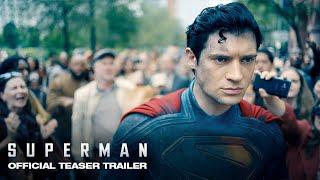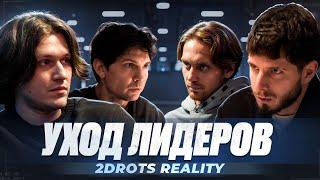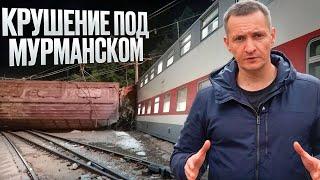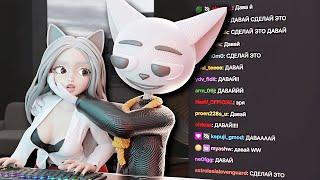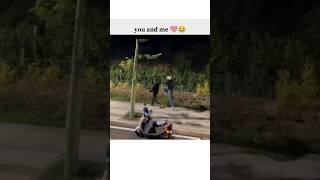
The Art of Black and White Photography
Комментарии:

Craig, I see you as 'BBC Roberts' as your videos always inform, educate and entertain - bravo. I think a lot of photographers probably make a similar transition to the one you describe here: initially seduced by bold, saturated colours and later recognising the appeal of form, shape and contrast with black and white. Also, you get an extra few hours in bed once you stop chasing colourful sunrises and instead wait for the shadows. Thanks for continuing your output on YT when your main business lies elsewhere; it is still a highlight for aspiring photographers.
Ответить
Top stuff and a mighty interesting audio track too 👍
Ответить
Craig…another excellent video. Bravo! 👏👏👏🏆
Ответить
Great video (again) 😊 that motivates me to endeavor B&W more. Previously, I associated B&W mostly with today's (mediocre) street photography, where B&W is mostly just used as an artsy-fartsy 'filter' without actually adding much to a scene's value. All good and impactful street photography has been in colour, since colour films were around, thinking e.g. of Martin Parr and his league.
But for architecture, like in your examples, B&W works really well, if one is blessed (or trained) with an eye for when B&W works 👍

Loop-watched the intro 3 times just for that delicious jazz ! :)
Ответить
Hi Craig, I never really thought of Black and White as seeing the world in a different way, great point. Great photos Craig as always, nice Shadows. Nice Album Cover. Thanks for this video. 😊
Ответить
it isn't often one can encounter a kindred soul but I continue to feel a warm comfort of shared vision with you thoughts and work, and at 72 years of age, I hope to grow up as wise as you. thank you
Ответить
Well I always thought you had great taste. Now it’s confirmed with the display of a fabulous album by my most favouritist band ever. 👍
Regards,
Dazza. 🇬🇧

Hello Craig
Speaking as an avid amateur photographer I absolutely love and gel with shooting black and white. I go out 99% of the time with my Fuji set to Acros R and I capture jpeg and raw, normally editing the raw version to polish the best images. In my journey of shooting BnW i noticed that I have 2 cameras that excel at it. Both quite old with approx 8mp sensors, and it dawned on me that it might be their lack of dynamic range, hence sooc photos having more black and more white straight out of the gate. I spent a lot of time being disappointed with my Fuji XT3 BnW images but understanding the camera more, my lenses more, dynamic range and my editing techniques I can achieve some great results. The problems I use to experience were that images were too dynamic hence an overall greyish feel.
Also... the music in the first section.... so very similar to the sounds of Dave Brubeck - Take Five ??

Yes Craig. Spot on advice.
Ответить
Purchased your ebook, thanks for the great content.
Ответить
Fuji and Ricoh are missing a huge market for a stripped down b&W version of their cameras
Ответить
I started my photography back in 1959, while serving in the army. A room mate wanted to start a studio when he got discharged and he helped me pick out my first camera. After my own discharge, I ended up working in mechanical engineering during the day and shooting for a weekly on my weekends. I would buy 100 ft rolls of tri-x and then develop the film after shooting high school sports. I never shot color as it cost to much. Today, I shoot with FujiFilm XT-20 set to raw/fine with the jpeg always set to black and white. I learned to see in B&W.
Ответить
Great video, awesome photos all around. Nice treatment of the topic and many good points. Typical of your work. However...
You didn't say the other magic word: TEXTURE. I think B&W is particularly well suited to underscore the texture of the subjects, and you left that out. (Particularly funny in that your shirt, while nicely matched to the topic, also featured lots of pleasing visible texture.)

Excellent advice, I loved the Jazz intro music the first few minutes, I believe I would rank this one of your best videos! Great images!
Ответить
Craig, great content as always. I like you started photography using transparency film. However, I must say I never liked the saturated look of the Fuji films and always shot Kodachrome or Ektachrome. Today light and subject matter determine whether I shoot monochrome, colour or partial colour. It is only in the last 10 years I have taken to black and white and I now shoot more black and white than colour. Partial colour is where it gets interesting. People talk about the how much they like the colours straight out of camera of a particular brand, but in my experience the default colours out of camera for all the brands has never been great. The manufacturers love to push a more saturated look, a bit like the Fuji films of old. This led me to play around with colours in camera. If I shoot full colour, I set the camera to the muted colour option and pull the saturation right back and only then does it start to approximate something I am happy with. My experimentation also led me to play around with the partial colour modes in my Olympus (OM Systems) cameras and this has been revelation. I could control the parts of the colour spectrum I want to emphasise, or even remove altogether, and this has changed my approach in the field where I now constantly switch between picture modes depending on the conditions and subject matter.
Ответить
Craig, you are the best advocate of “photography” in its entirety. Your personal journey and development speak for themselves and the results are again and again mesmerizing. Seeing the beauty in other things - what a gift.
I love my (yes, here it comes) Oly Pen F B&W jpgs. Sadly I lack the opportunity to use it like that as often as I would like to.
And, you deliver your very profound thoughts so smoothly and elaborate, one wonders how many takes you need 😉
Great Work 👍

"Hi Craig informative vid as usual, I love b/w (light, form, mood) thats the hook for my photogtaphy. my children love taking colour images on their phones, and very rarely press the mono button! I think as ypu mature in your photography b/w becomes a beautiful alternative to convey mood, and storytelling images ,which they will discover as their photo journey continues!
ps, have you a music review site Im missing🙂 cheers."

Great advice! And great seeing some YT videos from you.
Edit: and I made that comment to early in the video 😅
Life lesson watch the whole video before commenging
But a warning is in place, if you start shooting BnW, you might start browsing for a Leica Monochrom. And that means morgage your house, again... ;)

Gretchen 🙂
Ответить
tiffs... TIFFs... TIFFS . What???
Ответить
what camera are you using?
Ответить
Great video. I shot the same locations in Halifax (just down the road from me in Bradford) last autumn and almost all my shots were black and white. I kept meaning to go back on a foggy night but never got round to it.
Ответить
Jazz, B&W, fantisic images and your delivery and knowledge is just sublime. Thank you good sir 👍🏿
Ответить
Great video, as Ive been going back to exploring B&W images.
Ответить
You're right about seeing in BW and taking the decision in camera. I still shoot most BW on film and develop myself, whereas for colour I changed to digital in 2005. Although I did shoot slides too between 2005-2008 because results of the lab were better than with colour negative film. Those bad lab results pushed me into digital, as well as the birth of our kids.
Ответить
Digital is too easy and boring.
Ответить
Your experience and knowledge shines through in this excellent video. Thank you
Ответить
Still can't beat a roll of B&W film! Playing in the darkroom is much more fun than sitting in front of a computer.
Ответить
Wonderful photos. An thank you for the quick B&W primer! So much for me to learn. I'm not a professional photographer, just an enthusiast enjoying the hobby with my old Pentax K-5II. Hey have you thought about trying the Pentax K-3 III Monochrome camera? It would cost a heck of a lot less than a Leica, lenses included.
Ответить
Great pictures!
Ответить
Thank you for this video. I start shooting in black and white and your advices are greatly appreciated. ❤❤❤
Ответить
I shot Panatomic-X and then processed it into positive images for projection onto a screen
Ответить
Great video. I use mft cameras. all set to jpeg large in B/W, with different filter settings. All to get it as I see it.
Ответить
Pentax K3 monochrome. You'll never look back
Ответить
Great video! Simple to understand and with informative insights. Thanks for sharing.
Ответить
Hello Craig, I’m a new subscriber. I’ve found yr vids just in time as I’m going to spend the day in Leeds on Wednesday shooting black n white only. Having just watched two of videos has helped a lot as I’m still an amateur’s amateur if you see what I mean. I have been shooting b/w here and there but without dedication to it, swapping between that and colour but in Leeds, it will be full commitment helped with some written notes from yr videos…Thanks.
Ответить
Enjoyed the vlog and seeing your work, especially the intro. I would just have loved the images to have stayed on screen just a touch longer to fully appreciate them ;)
I fell in love with B&W in the 80's watching my dad develop and print in his darkroom in the loft. Fast forward 40 years and I just got myself a Q2 Monochrom to push my love for B&W further. I now shoot 90% B&W anyway and having the Q2M is a dream come true for that.

I have a custom preset for monochrome on my EM1 MkII Olympus - the viewfinder shows the scene in monochrome, helping me to think in monochrome. The jpg is monochrome and the raw file has all the colour data.
I shoot mostly B&W film, partly due to the cost of colour film and the fact I don't yet develop colour at home so developing costs play a part. Especially in 4x5.

I shoot black and white and love it. Whether it’s on film or digital, black and white conveys a story that color cannot.
Ответить
Hi Craig, I do lanscape photography in colors but today the b/w it's attracting me a lot. I have a great dude photographing landscape in b/w. The dark could be totally dark or I must show details?
Ответить
I did Zone System B&W between 1971 and 1990 when I had to pack up my darkroom. During that time I also assisted Monte Zucker, a top wedding photographer and PPofA teacher and author and worked as a lab technician at National Geographic reproducing B&W photos and 4/C map relief for its magazine and books. In the mid-1980s as production manager at a USIA printing center I had the opportunity to reproduce a dozen of Ansel Adams prints as double-black duotones for one of the magazines we printed.
The magic of B&W film unmatched by color film and digital sensors is its ability to capture a full range of detail under high contrast lighting conditions like sunny cross-lighting. It actually wasn’t that difficult to full range B&W prints if one understood how the medium worked.
One could use the Kodak method it created for roll film of developing the film so the contrast of a sunny cross-lit day could be reproduced on #2 print paper, then switching to #3 or #4 when the light had less contrast on cloudy overcast days, or #1 if encountering more contrast such as sunny snowscape or beach scene.
Adams who used sheet film stayed with the ‘Old School’ method of always printing on one grade of paper (#2 in the Kodak System) and changing the negative development time of the negative to alter the highlight densities to always match the range of that paper. As with the Kodak system getting a full range print on #2 paper for a photo taken in Sunny crosslight was his “Normal” scene development. Then for photos taken under lighting with less contrast instead of changing paper grade / contrast he just developed the film longer. Back in the 1920s when he started using Orthochromatic film which is not sensitive to red light he and his contemporaries like Edward Weston developed their sheet films in tray by eye to do the same thing; fit the range of the film to the negative.
Having a 1° spot meter to directly measure Zone 1 shadows for exposure and Zone 9 highlights to determine EV range allowed me to streamline Adams’ System skipping the metering off the 18% Zone V gray card and adjusting exposure from the reading. I just adjusted the ASA setting of spot meter until the exposure indicated when reading the Zone 1 shadow area of a scene directly reproduced it with density just above film base on the negative and the outline of shadow detail above max. black on the print. The EV range between the Zone 1 shadow area and Zone 9 smooth highlights told me when shooting (based on previous testing) exactly what development time I’d need if printing on #2 paper, or alternately if doing PJ work where I shot under different scene contrast on the same roll what paper grades I’d need for each shot using standard #2 print negative development. The precision of direct scene reading for exposure and range/development/paper grade made getting a full range print no-brainer simple.
Even if one doesn’t ever shoot B&W or make a print reading Adams books is recommended to understand the “art” he added to the technology to create the magic in his images.
Adams understood the pupils of eyes adapt expose the brightest highlights with detail at the expense of losing perception of detail in the shadows. So just by capturing and reproducing the full range detail in a scene like Half Dome on a print allowed the viewer of the photo to see details in the shadows they might not have noticed in person looking at it from the same POV.
Adams also understood how contrast attracts the eye in a photo and how to change it in a scene captured on Panchromatic film by using color filters.
For example in any landscape photo with sky at the top the contrast of the brighter sky will pull the eye to it reflexively. Adams prevented that from happening in his iconic landscapes by using a red filter over the lens which will render blue sky much darker. Green foliage takes on an unnatural luminescence if a green filter is used and a orange filter will create the same unnaturally but awe inspiring rendering of the same leaves in fall. It was the exact opposite of what one tried to do in photojournalism — record what was there faithfully as seen by eye—which made transcend craft (the mastery of the technical process) and become a medium for surreal artistic expression.
The only way to match the contrast range of B&W film on a sunny day with digital is with two exposures for highlights and noise free shadow detail blended in post-processing with HDR. Then using manipulation of the channels the contrast of colors can be altered the way Adams did with filters and Panchromatic B&W.

Good hints and tips …. And personally, why B&W are so appealing? I think the majority of our visual memories are stored as B&W in our brain 😄😉
Ответить
Halifax. A touch of nostalgia. I left Halifax in 1978 to see the world and to earn a crust. I have lived in Thailand for the last twenty years after working in South-East Asia and the Middle-East before retirement, although I did return home to see my parents frequently. Thanks for the memories. Black and white realy suits the mills and cobbled roads.
Ответить
Love your thoughts here. Beautiful work. Great music choice too. Dave Brubeck?
Ответить
Am a novice, experimenting with all sorts of things. There are some stunning shots in here and the video is great fun to watch. Thank you.
Ответить
Great story telling skills from origin to destination!
Ответить
Great advice, thank you. After years of competitive photography, listening to judges waffle on about colour not lookin right or a mono conversion, not looking quite right, I bought a Q2 Monochrom last month, I'll let you know how I get on with the judges 😅
Ответить















